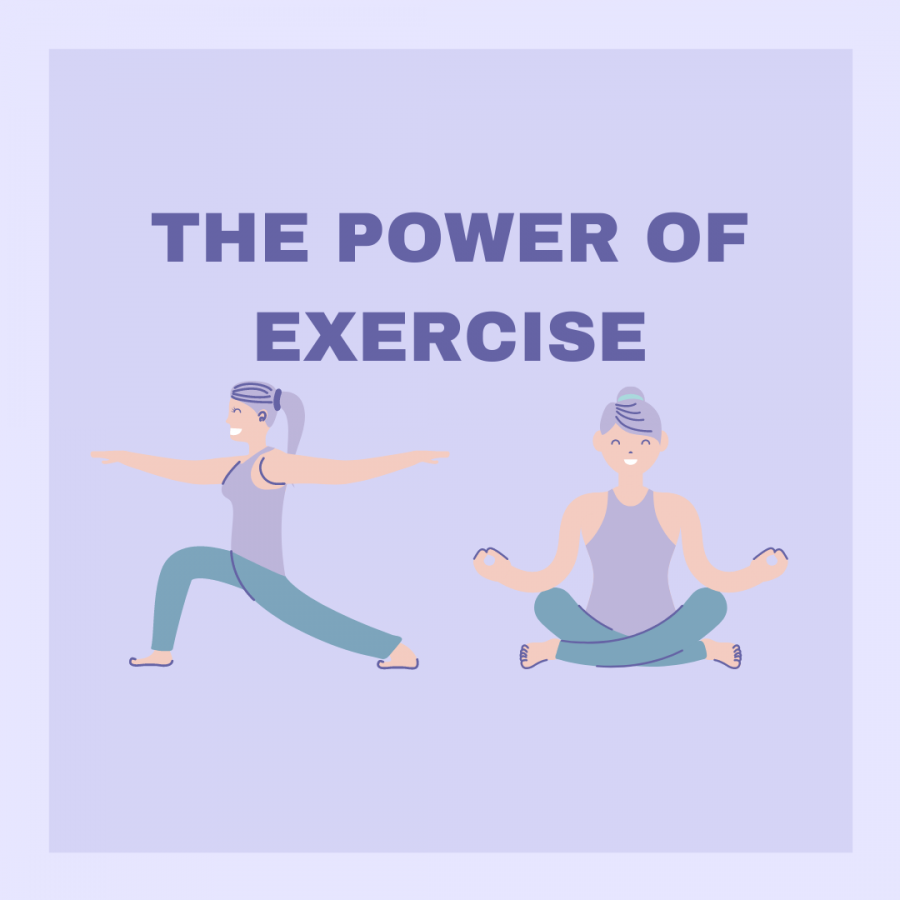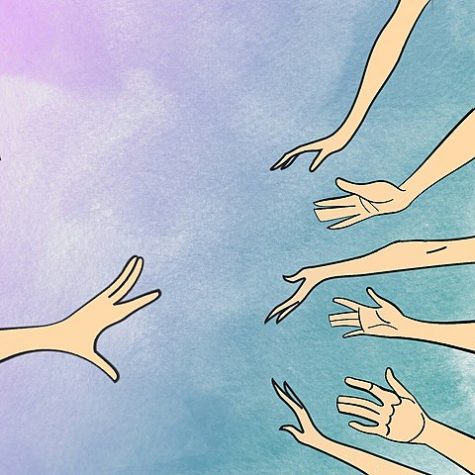Hobbies for Anxiety Relief: The power of exercising
How activities as simple as walking can improve your mental health
As college students, it can feel like we have way too much work and not enough hours in the day to do it. Especially during busy times in the semester like midterms and finals week, we can easily neglect our mental health and self-care because we “just don’t have the time.” However, it is times like these when getting outside for a walk, or taking a 45-minute break to go to the gym can be the most beneficial.
Exercise has a multitude of mental benefits. It relieves stress, reduces inflammation in the brain, improves sleep, increases energy levels, and boosts self-esteem to name a few. Many times, people tend to focus on the physical rather than mental benefits of exercise, which can make sticking with a regiment more challenging because you don’t see immediate results. However, switching gears and focusing on how exercise makes you feel is when you can start to really see the benefits. Your brain might feel a little clearer, and you may even experience a little more pep in your step. Exercise doesn’t need to consist of lifting heavy weights or running sprints in order to be effective. A walk around the block or riding your bike can be very beneficial and much easier to maintain.
When COVID sent us into quarantine last March, my anxiety worsened and I was stir-crazy. I found myself going on runs when I had never been a runner in the past. Not only did it get me out of the house, but it reduced my anxiety greatly. One to two daily walks started becoming my norm because they were something I could maintain. It was easy enough for me to do almost every day but challenging enough that I was tired by the time I got home.
Exercise gives us an escape. It’s a designated amount of time to check in with yourself, see how you are feeling and see what your body is capable of. The trick to incorporating exercise into your daily routine is to find a specific activity that you enjoy. Maybe you really like going on bike rides, or you live close to a beach where you can go on walks or do yoga. Maybe you enjoy participating in fitness classes or can start implementing at-home workouts into your daily routine. Or, even better, you could try a little bit of everything and see what you enjoy the most.
The best way to create a habit out of exercise is to set SMART goals, which have been scientifically proven to make goals more achievable. SMART stands for Specific, Measurable, Attainable, Realistic, and Time-sensitive. An example of a SMART goal I set for myself was, “ I am going to do weight-training exercise twice a week for 30 minutes.” I chose the frequency of twice a week and the duration of 30 minutes because I knew it was an amount I could definitely stick with. I also chose weight training because I wanted more of a challenge than my typical walks. I kept my goal broad with “weight training” because I always like to change up my workout. Sometimes I use dumbbells and medicine balls in my basement, and other times I use machines at the gym. Having this variety keeps me consistent.
To set your own SMART goal, set a realistic amount of time for you to achieve this goal. What time of day could you see yourself incorporating the exercise? What type of exercise would you like to do? Trying to make your goal as specific as possible will make the goal more achievable.
Exercising even just one more day than you typically do can reap many benefits. Anxiety and depression can be debilitating and can make you think you don’t have the time. I’m here to tell you that you always have the time. The only way you can see the benefits is to try it yourself. You won’t be disappointed!
Email Madison Bethune at [email protected]















